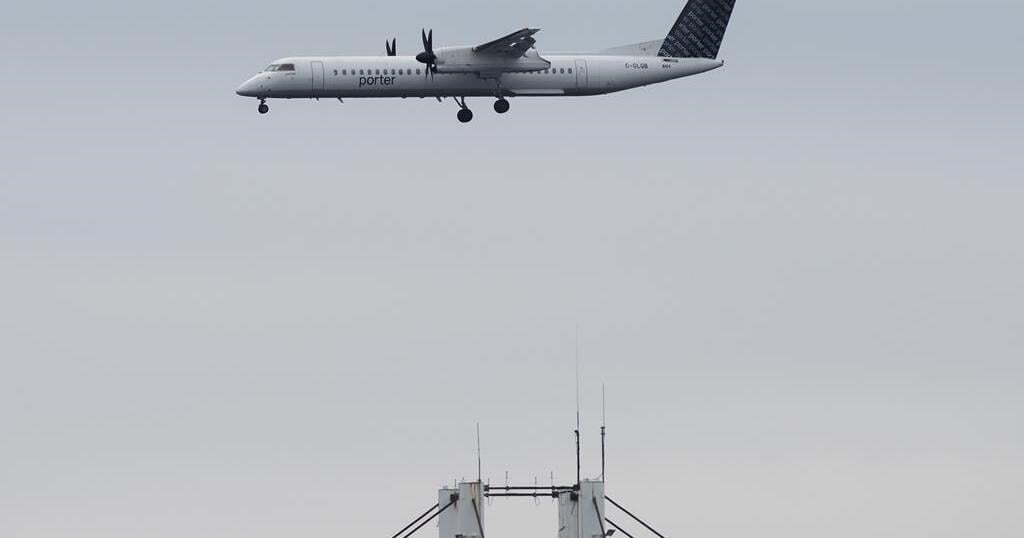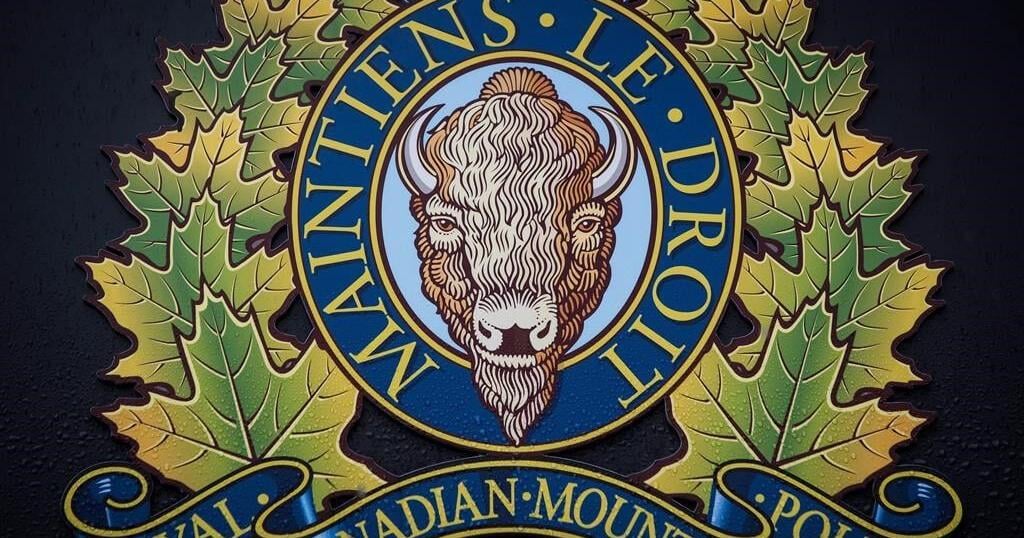MONTREAL – On a warm Wednesday this month, a cartoon raccoon raised a cocktail glass and sarcastically saluted Air Canada.
The social media image, posted by Porter Airlines, included an accompanying toast from the character: “Air Canada has now joined Porter in offering free beer, wine and snacks to all passengers. Thanks for joining our mission to help everyone actually enjoy economy!”
Tongue firmly in cheek, the post went on to ask Canada’s largest airline, “What’s next, a raccoon mascot?”
The online jibe marked the latest instance of publicly calling out competitors — a recent trend amid a transforming airline market that has companies stepping on each other’s wingtips in new ways and on a bigger scale.
In a country traditionally dominated by two national airlines, a new set of aviation rivalries has emerged. Porter is increasingly moving in on Air Canada’s home turf of Central Canada as well as cross-country routes, while WestJet seeks to counter the threat of Flair Airlines in a shift from the decades-old industry dynamic of sparring between the two biggest carriers.
Porter, once a regional player hovering around the Toronto-Ottawa-Montreal triangle, has over the past 18 months tripled its domestic market share to nearly 10 per cent. Turboprop planes were used when the carrier only covered short distances. Now it has 35 Embraer jets in its fleet and expects 40 more by 2027, up from zero as recently as January of last year.
The rapid expansion overlaps heavily with Air Canada territory in Ontario and Quebec, prompting the country’s largest airline to serve up no-charge treats and drinks. Cocktails also now cost $5 per glass, down from $9. Porter has long touted similar offers.
“It shows that they’re concerned about our market share growth and what we’re doing, and that we’re a real competitive threat to them,” said Porter president Kevin Jackson in a phone interview.
“How do I prove that? They did not launch free beer and wine to Mexico and the Caribbean. We don’t fly there yet.”
Air Canada said it continually refines its on-board products. “We take all competition seriously,” said spokesman Peter Fitzpatrick in an email.
Flair and WestJet have also raised their hackles as the two jostle for market share.
Flair now has a 20-plane fleet — still a fraction of WestJet’s 180 aircraft, but enough to demand a response from the older of the two Alberta-based airlines.
In a bid to attract more price-sensitive customers — Flair’s core demographic — earlier this month, WestJet replaced its basic ticket tier with a new fare category that did away with a free carry-on bag and other perks travellers once took for granted. Customers who choose the “ultra-basic” option must pay to select a seat even when checking in. Also, they board last — despite being relegated to the back of the plane.
Flair joined in on the ribbing that Canadians delivered online, retweeting a post on X, formerly known as Twitter, from satirical news site The Beaverton: “WestJet announces SuperUltraBasic fare where customers just stay home and give them money.”
“Don’t be ultra basic. Fly Flair,” the budget airline, which offers a nearly identical fare tier, posted a day earlier.
But WestJet may have the last laugh. In its first week, the fare class topped expectations with more than 100,000 tickets sold, the company said.
John Gradek, who teaches aviation management at McGill University, said WestJet’s move marks a competitive thrust against a growing rival.
“They’re basically taking Flair on head-to-head,” he said.
Flair swooped in to fill the void left by Air Canada when it pulled out of dozens of regional routes west of Ontario during the COVID-19 pandemic.
Meanwhile, Calgary-based WestJet has cut routes in Ontario, Quebec and Atlantic Canada to refocus on its home turf out west. On Toronto-Montreal, it went from about 370 flights per month two years ago to none, according to figures from aviation data firm Cirium.
WestJet retrenched in the East and dug in farther west “rather than go up against Air Canada in a lot of markets,” said Helane Becker, an aviation analyst at TD Cowen. “That’s where they were strong,” she said, referring to British Columbia and the Prairies.
Montreal-based Air Canada has mirrored this move, remaining in Central and Eastern Canada while scaling back in the West. With Porter’s ascent, it has replaced WestJet as Air Canada’s biggest rival on routes such as Toronto-Halifax, Toronto-Fredericton and Montreal-Moncton, N.B.
The fresh dynamics of the airline world don’t necessarily mean more competition, particularly on regional trips.
Lynx Air and Swoop are defunct — and Sunwing Airlines is set to fold into WestJet’s main operation next year. As surviving airlines set their sights on more lucrative markets abroad and ditch smaller planes in the interest of higher-volume trips, flight numbers on numerous short-haul routes have plummeted over the past five years.
Domestic capacity will likely decrease this year compared to 2023, Becker said. Partly as a result, prices keep rising. Airfares climbed nearly five per cent year-over-year last month, according to the latest consumer price index report.
WestJet and Air Canada remain rivals, as do Porter and WestJet, with all four competing for traffic between Toronto and Vancouver as well as on trips to Florida, among other spots. But the lines on the competition map have been redrawn.
“All carriers are competitors, including U.S. carriers … but the airline that we overlap the most with, of course, is Air Canada,” Porter’s Jackson said.
“We’re stealing market share.”
This report by The Canadian Press was first published June 30, 2024.
Companies in this story: (TSX:AC)

























